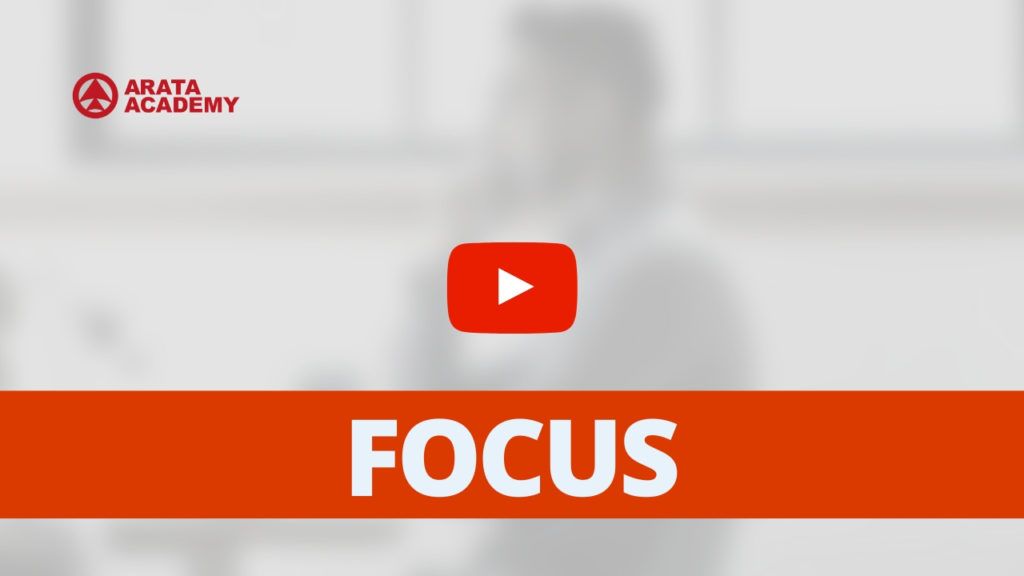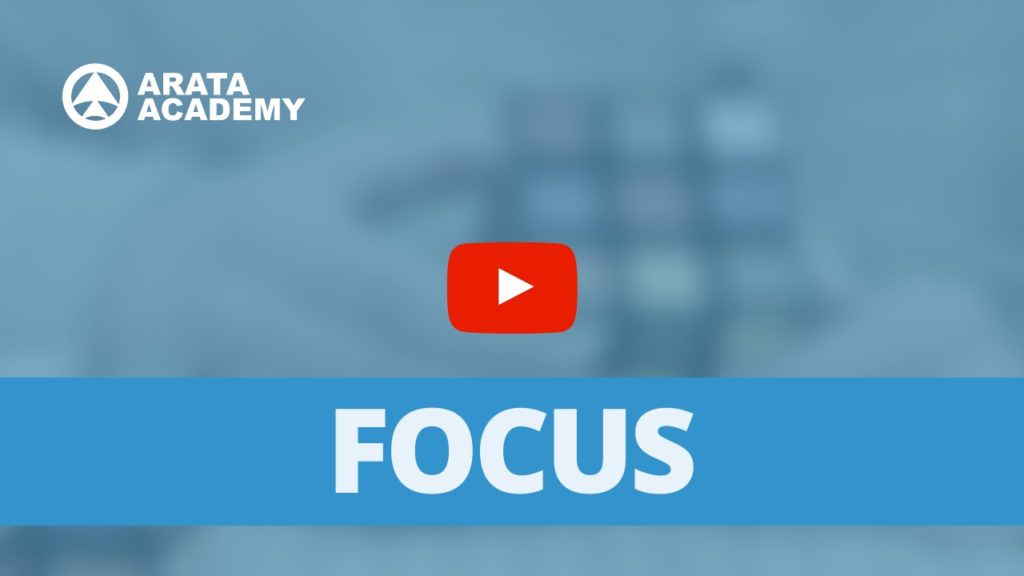Hello! Seiiti Arata. This is a video for you who are studying and want to increase your focus, your ability to concentrate.
It does not matter if you are studying for a test in elementary school or a professional certification exam. You may be studying a foreign language or simply trying to read a book. When you are looking to devote mental energy to a task but cannot seem to find the discipline, you are lacking FOCUS.
If you begin to study, and after a few minutes you are already getting up from your chair to do something else, this is a lack of FOCUS. If you begin to study and feel an irresistible urge to check something quickly on your phone, you lack FOCUS.
1. We get anxious when we do not have what we want.
SHORTFORMCLIP When your mind is focused only on the end goal, that end result that you want, you will inevitably be frustrated with every second in which you have not reached that goal.
This is obvious, this is logical. You are experiencing anxiety because you are not there yet. You are attached to the idea that you will be happy only if you have something that you do not have.
That is, the present time is a source of agony, frustration, sadness. This makes it all but impossible to sit in front of the book.
2. Develop your FOCUS on the present.
The reason for recommending deliberate practice is that it helps you to return to the present moment.
At this point I imagine many people grumbling, “Gee, the video title was ‘How to increase the focus on the study’, and suddenly he’s giving us tips on how to stay in the present moment? It sounds like all those clichés—‘the journey is more important than the final destination’ or ‘Happiness is not a station but the train itself’ or ‘the purpose of life is life itself.’” Well, all this says the same thing, doesn’t it?
When your goal is to be present, conducting the practice of the study, there is a shift in thinking. There is a big difference in how you face the challenge ahead. When you are really shifting the focus of your attention to what you’re doing now—at this very moment—there is no anxiety.
Control of FOCUS is the first step for everything. If you want more complete training, enrol now in the FOCUS course that is specially designed for you to complete in a single day. It offers three hours of online video training you can perform in the comfort of your home, starting right now. Visit http://arata.se/focuscourse.
In the FOCUS course, we have a very detailed explanation of how you can have focus in the present, with exercises to reinforce what you’ve learned. It will help a lot.
3. Practice letting go of the final result.
To focus on the present and be able to study effectively, you will have to learn detachment. You have to give up (at least temporarily) your attachment to the desired result.
If you stay attached to the end result, which is your desired level of mastery of the subject, you will never be able to stick to the practice.
When you detach from the outcome, something amazing will happen: all of the expectation and pressure goes away. Anxiety dissolves, evaporates. You will be calmer and more aware of what you’re doing. You will achieve more clarity and resume control of your focus. You’ll silence that inner dialogue, that judgment about what other things you could or should be doing.
4. Reframe the way you view errors.
Right now, you possibly kick yourself for every mistake you make. When you are focused on the present moment, though, every mistake is a learning opportunity. Mistakes are no longer a barrier, and learning becomes discovery.
Best of all is when this study is done mindfully, without stress, without comparing where you are to where you should be. You’re just doing the practice and improving every time, step by step.
You’re not saying to yourself, “Hey, this is a really difficult part—this is one thing I will never get right! I’m terrible at this. I have no talent for it.” Beware the Golem Effect we saw in episode 46 in http://arata.se/hello46.
5. Stop thinking of other things. Just think about the study before you.
When your head is somewhere else, thinking of other things—including judgments that you are not doing the right things, that you have difficulty with the subject matter, that the teacher could not explain it well—you are distracted. Your focus is scattered. All these thoughts are useless and only hinder you. This extra layer of thoughts only makes it harder, stealing your energy, your concentration, your focus.
When you are fully focused on the activity, you do not have a second layer of thoughts.
Oh, there will be distractions! But you are watching what you do, in your study, in your practice. You are absorbed in the result of what you do now, at this moment. You will watch the results of each action, and so you can redirect your practice in order to keep improving. This is deliberate practice.
We do not want to lose the connection to the present moment and get too attached to the end result.
The focus on results makes you judge yourself. You start with an internal dialogue, thinking that you are not good enough. This will create mental dominos, taking you to another line of thinking that assesses whether you are up to the challenge, or not.
When we focus on the present moment, we are emotionally indifferent about the outcome. We accept things the way they are. This allows us to be clear about how our practice is evolving. Be patient. Anxiety affects the quality of your practice. You have to dedicate focus to your study. Mastery develops when you stay in the process and practice. Learn to enjoy the process! To perform exercises that will help, enroll now in the FOCUS course at http://arata.se/focuscourse.

